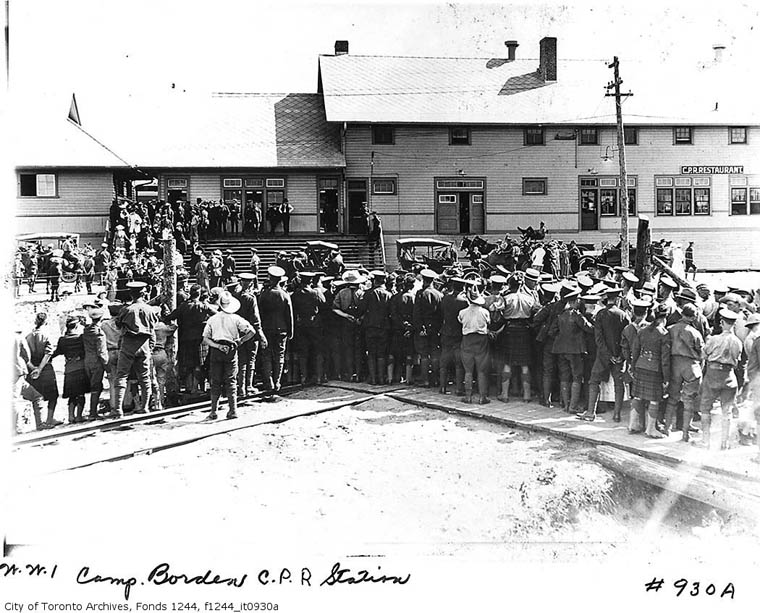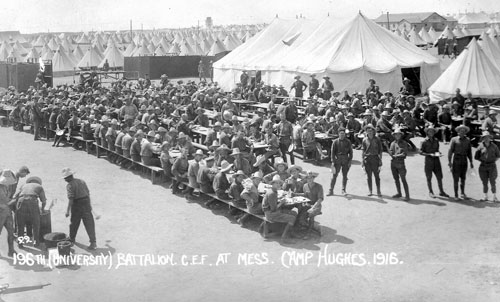On May 16th, the battalion moved out to the barracks at the exhibition camp down at Toronto's west end. Two months later, they were uprooted and sent to Camp Borden. The conditions at Camp Borden had been described as "very primitive." The camp consisted of rough sawn shanties, dirt roads and tents. But there were some luxuries. The YMCA opened a canteen and there was a large wooden shed called the "Stand" that was used for theater productions. On July 11th, Major General Sam Hughes inspected the battalion.

Men at Camp Borden

Chow time
Between July and October 1916, Jack and the 180th trained to go to war. On October 24th, the battalion arrived in St John, New Brunswick. There they waited for ninteen days before leaving for Halifax. On November 13th, Jack and five thousand other men, boarded the Olympic. In the journal of Deward Barnes (180th Battalion) he describes the conditions of the trip to England.
"Some had to sleep on the floor, and some in hammocks which were hung over the dinning room tables after all the meals were over. We had to wear life belts when we went on deck, always. We had one pay on board and fire drill every morning. They had concerts every night just made up from the talent among the men. Bands played in the daytime. There were big dinning rooms and it was surprising what you could eat. Of course, you had your certain time to eat and I did not miss a meal"
From "It Made you Think of Home: The Haunting Journal of Deward Barnes, CEF: 1916-1919." By Bruce Cane. Dundurn Press (Aug 1 2004)
On November 21st, the 180th arrived in London. From there they headed to Witley camp, where they continued training.
Something I had not brought up before, is pay. As a Private in the CEF, Jack received a dollar a day, which was paid out in the local currency. When Jack left for England, he assigned half his pay to his wife, Alma, in addition she also received twenty dollars a month in separation allowance.
At the same time Jack was leaving for England, the Battle of the Somme was ending. This battle is mostly known for its first day (July 1st 1916) where 19,240 allied troops were killed. By November there were 623,907 allied casualties. Who knows what Jack and the other men thought upon hearing this news. Soon they would be in France and in a year he would find himself in an even worse place: Passchendaele








